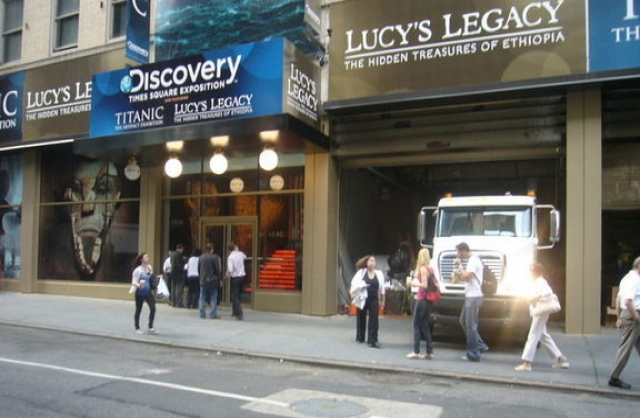 Photo from the New York exhibition of the world-famous fossil from Ethiopia Lucy (Dinknesh) at the Discovery Time Square Exposition on Wednesday, June 24, 2009. (Photograph: Tadias Magazine file)
Photo from the New York exhibition of the world-famous fossil from Ethiopia Lucy (Dinknesh) at the Discovery Time Square Exposition on Wednesday, June 24, 2009. (Photograph: Tadias Magazine file)
BY TOM SIEGFRIED
Donald Johanson is always looking at the ground.
“I find more quarters by parking meters than anybody I know,” he says.
As he was looking at the ground four decades ago, in a region called Hadar, named for a dry riverbed in Ethiopia, he saw something a lot more exciting than a quarter. It was a fossil bone.
“I found a little piece of elbow,” he said last week in Columbus, Ohio, while addressing a conference of science writers. “And I knew from studies of osteology and comparative anatomy that this had to be from a human ancestor.”
By two weeks later, Johanson and his colleagues had collected enough bones to reconstruct about 40 percent of a skeleton. Those bones belonged to a primitive human forerunner now known as Lucy.
[This] month paleoanthropologists will celebrate the 40th anniversary of Johanson’s discovery of the elbow bone on November 24, 1974. In the intervening four decades, many more fossils along with other clues have been discovered, rewriting the story of the human race. The evolution of earlier humanlike species and eventually modern humans has grown from the outline of a play with a small cast to an elaborate production with more characters than an Agatha Christie mystery, many remaining enigmatic with relationships still unclear.
Read more at ScienceNews.org »
Video: ‘Lucy’ returns home after 6-years US Tour (CBS News)
—
Join the conversation on Twitter and Facebook.

























